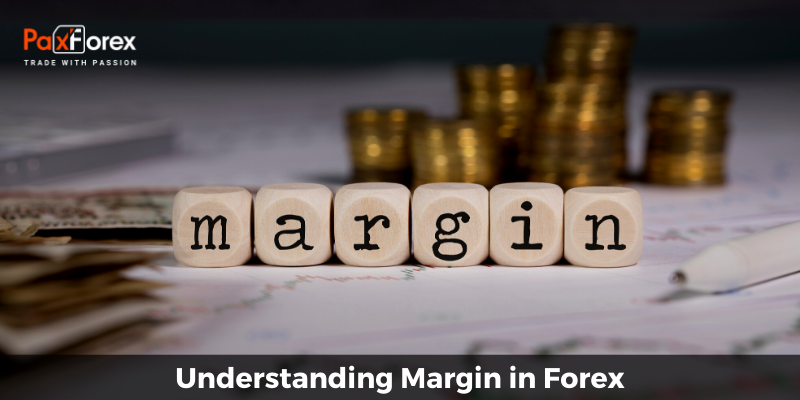
The forex market is exciting and accessible to small retail traders because of the industry's high leverage options. Leverage gives a trader the ability to increase the potential return on an investment and it works both ways. However, it also increases potential risk. Therefore leveraging magnifies both gains and losses. Leveraging a position involves putting down collateral known as margin to take on a position that is larger in value.
Forex trading is exciting because your broker is willing to essentially lend you money so you can increase your profit-generating potential in all of your trades. Before your broker lets you borrow money however you have to show that you have some money to cover any losses you may incur. Margin is the money you set aside with your broker for safe keeping to prove that you are able to cover your losses.
For example, if you want to buy the EUR/USD and you trade with a leverage of 1:100 you will be required to set aside one percent of the position size as margin. That means if the position size is $100,000 you will be required to set aside the equivalent of $1,000 to prove to your broker that you can cover losses of at least $1,000 should your trade move against you. When you buy a currency pair you do not have to come up with the cash on your own. Your broker loans you enough of one currency to buy enough of the other currency in the pair.
The leveraged nature of forex trading means that any market movement will have an effect on your deposited funds proportionally equal to the leverage factor. This may work against you as well as for you. The possibility exists that you could sustain a total loss of initial margin funds and be required to deposit additional funds to maintain your position. If you fail to meet any margin call within the time prescribed your position will be liquidated and you will be responsible for any resulting losses.
As a forex trader you must maintain sufficient margin in your account to support your open positions. You are responsible for monitoring your account to prevent margin closeouts. A margin call may occur even when an account is fully hedged, since spreads may widen, causing the remaining margin in the account to diminish. Should the remaining margin be insufficient to maintain any open positions the account may sustain a margin call closing out any open positions in the account.







